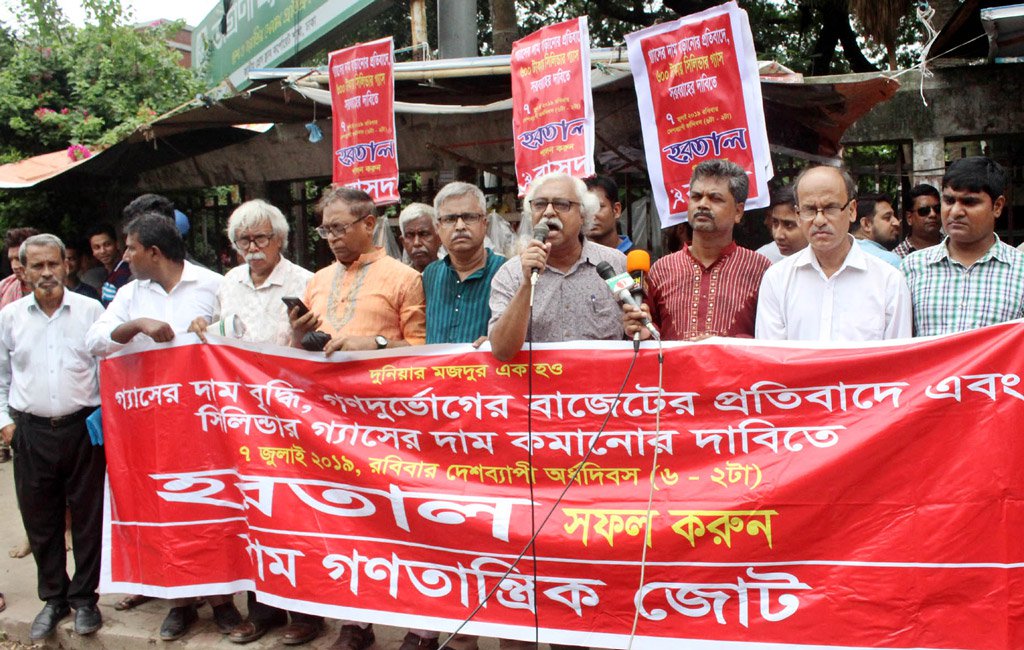On July 7, hundreds of civilians and activists took to the streets of Dhaka after the Bangladesh government announced an increase in the price of gas. The half-day nationwide strike was called by the Left Democratic Alliance, a coalition of eight left-leaning parties. The protesters chanted anti-government slogans and blockaded key intersections and squares, halting traffic movement across the national capital. The strike was supported by opposition parties, as well as the business community .
The government raised the price of gas in eight categories, including that of household users, despite persistent opposition from consumer rights groups. The state-run Bangladesh Energy Regulatory Commission announced that the latest average price of gas at the consumer level from July 1, which is the first day of the country’s fiscal year, was set to be Tk 9.80 per cubic meter, a 32% increase from Tk 7.38. The new tariff for a household using a single burner will be Tk 925 (USD 10.91) per month instead of Tk 750 (USD 8.85).
The Communist Party of Bangladesh, the Bangladesh National Awami Party, the Bangladesh National Party and several other parties asked the government, headed by prime minister Sheikh Hasina of the Awami League party, to reconsider the decision on the grounds that the price hike would affect the budgets of the public. However, the officials ignored the request and said that the decision was a “fair one”.
The president of the Bangladesh Garment Manufacturers and Exporters Association, Rubana Huq, said that the gas price hike would further affect the industry. “On the basis of the information I have, the gas bill will take up around 1.5% of the manufacturing cost. So, a 38% increase in gas price means almost 1% increase in production cost,” she said.
“This may not sound much in terms of percentage but for the industry which is struggling for every penny, this will be another blow,” she told reporters.
Bangladesh currently has the second largest textile industry in the world after China, with exports valued at almost USD 30 billion last year. But most of its workers are finding it difficult to make ends meet under the current pay scale of USD 95 per month. The price hike is likely to worsen their plight.





